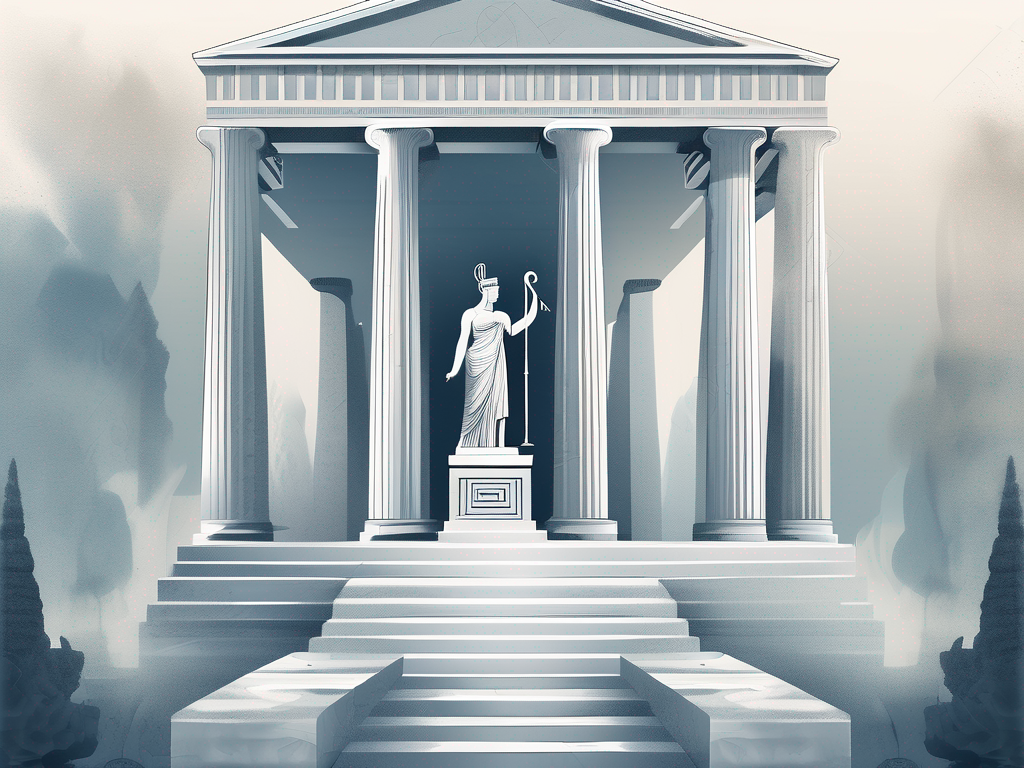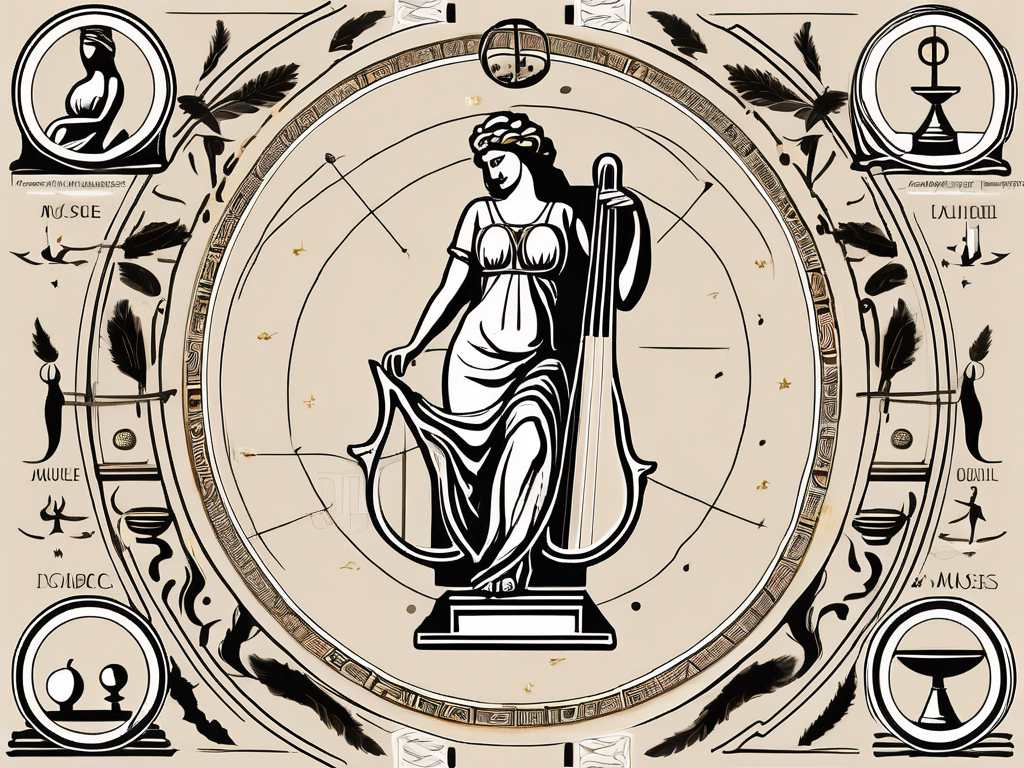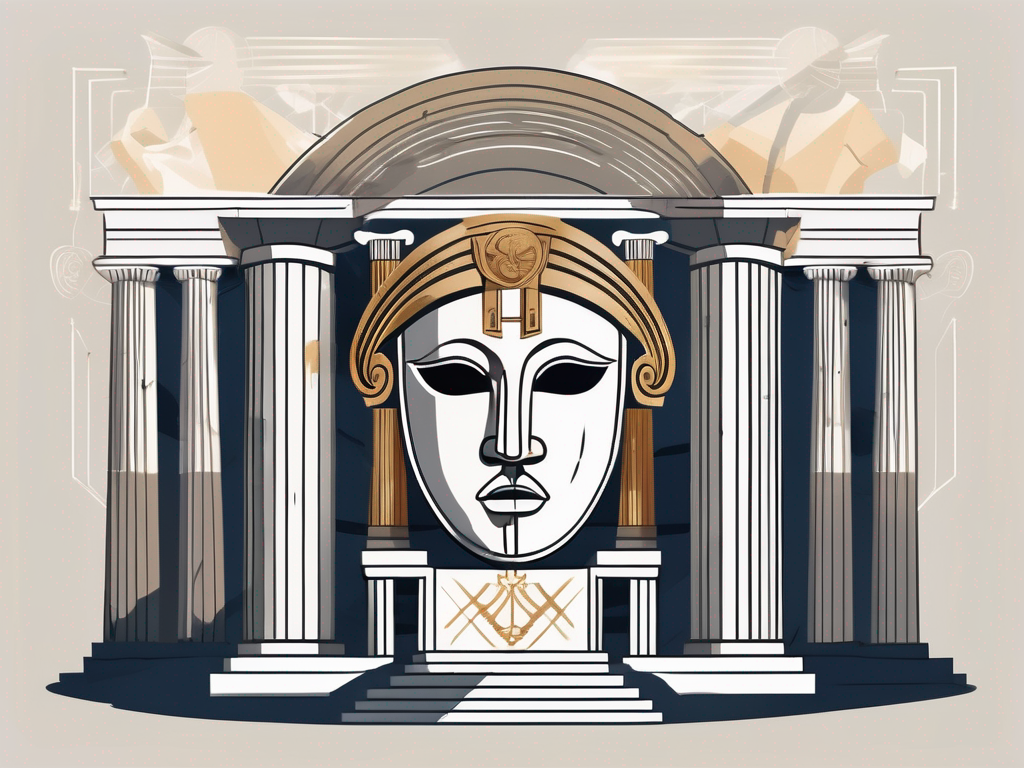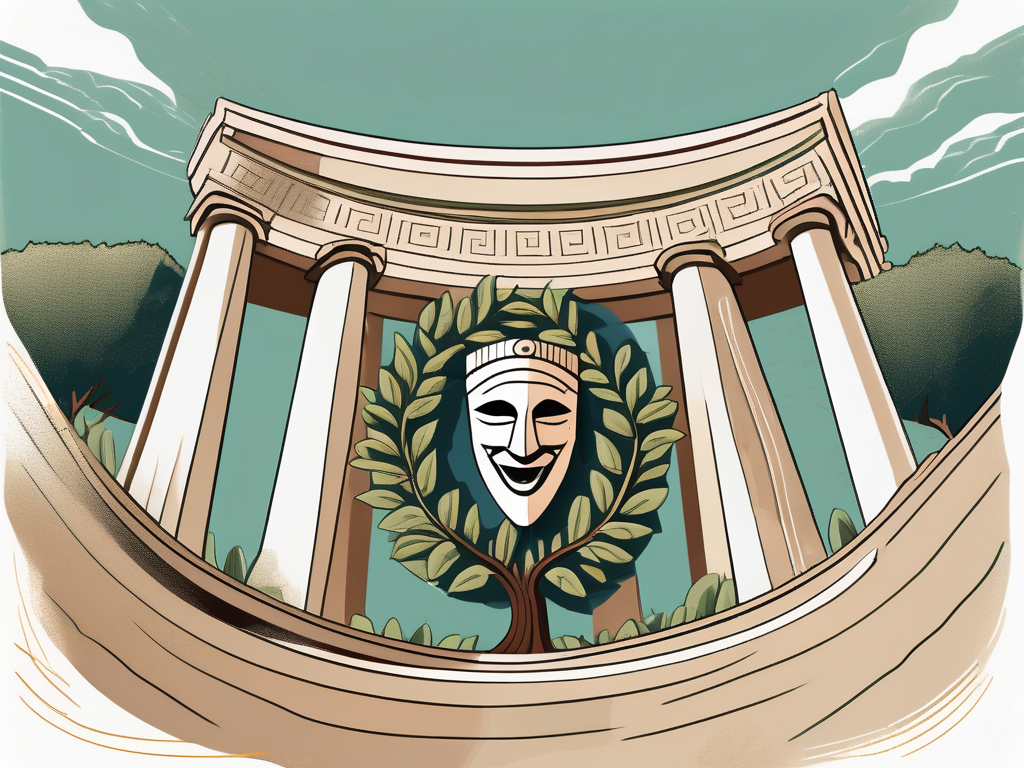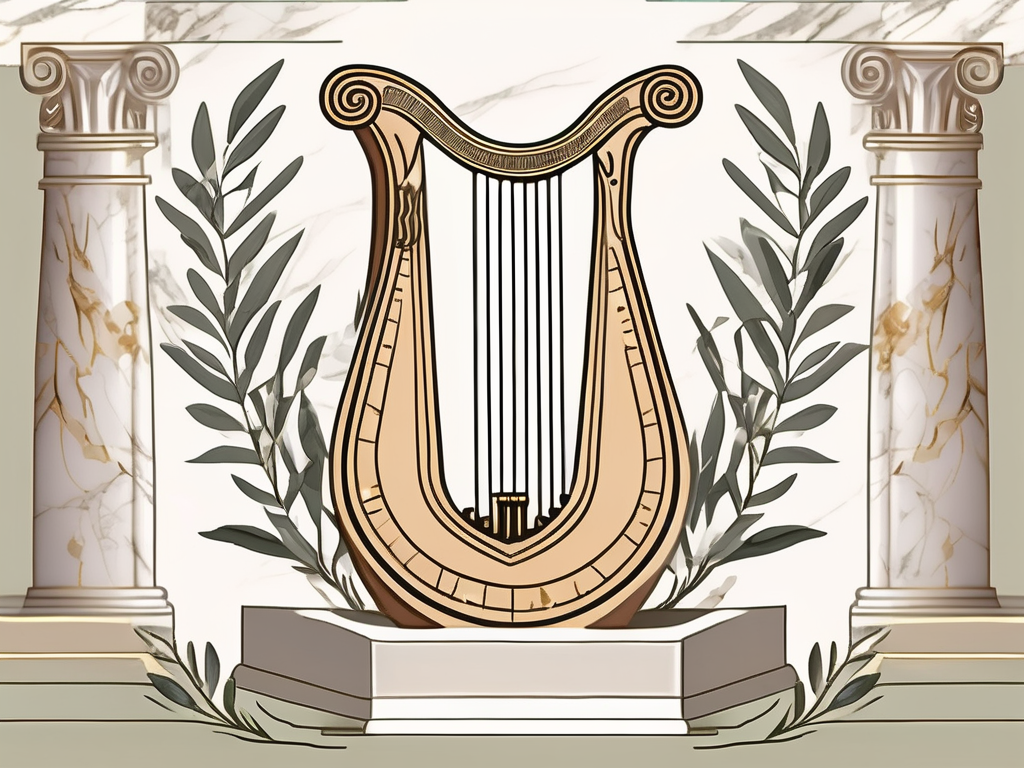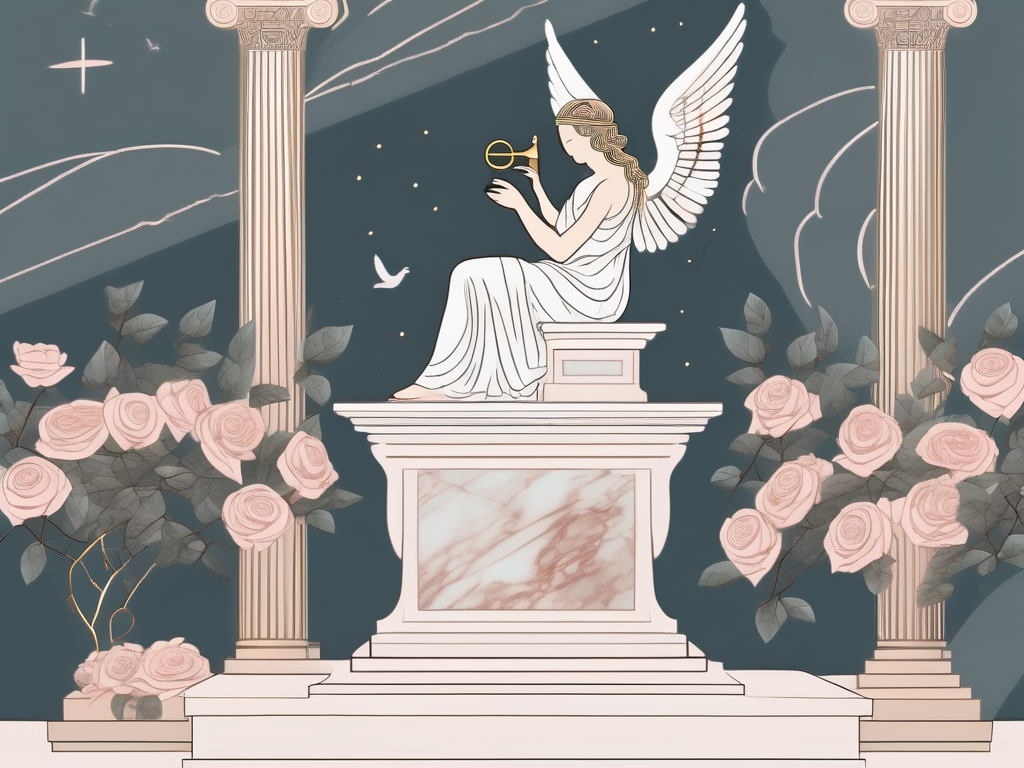The ancient Greeks were no stranger to myths and legends. From gods and goddesses to mystical creatures, their mythology is filled with fascinating characters that continue to captivate our imaginations to this day. One such enigmatic figure is Clio, the Muse of History. In this article, we will delve into the depths of Greek mythology to uncover the secrets behind Clio and explore her lasting influence on our society.
Understanding Clio: The Muse of History
To comprehend the essence of Clio, we must first understand her role as one of the nine Muses in Greek mythology. The Muses were known for their exceptional beauty, intellect, and artistic abilities. Each Muse presided over a specific domain, and Clio’s domain was history. She was the source of inspiration for historians, guiding them to unravel the mysteries of the past.
Clio, with her radiant presence and ethereal grace, captivated the hearts and minds of all who sought to understand the tapestry of human existence. Her enchanting melodies echoed through the corridors of time, beckoning historians to embark on a journey of discovery, where the past would come alive in vivid detail.
The Origin of Clio in Greek Mythology
According to ancient Greek mythology, Clio was born from the love between Zeus, the king of the gods, and Mnemosyne, the goddess of memory. Their divine union gave birth to nine extraordinary daughters, the Muses, each embodying a unique aspect of human creativity and knowledge. Clio, as the Muse of History, possessed a profound connection to the past, an eternal wellspring of wisdom that flowed through her very being.
Legend has it that Clio’s birth was accompanied by a symphony of celestial music, as the heavens rejoiced at the arrival of this extraordinary Muse. From the moment she took her first breath, Clio was endowed with the gift of remembrance, an unparalleled ability to retain every detail of the past, no matter how fleeting or forgotten.
Clio’s Role and Responsibilities as a Muse
As the Muse of History, Clio had the responsibility of guiding historians and ensuring that accurate accounts of past events were recorded for posterity. She offered inspiration, enabling scholars to dive deep into the annals of time and discover valuable insights into the triumphs and tribulations of civilizations.
With a gentle touch, Clio would whisper forgotten tales into the ears of historians, igniting their imaginations and fueling their passion for unearthing the truth. She would weave intricate narratives, interlacing the threads of time to create a rich tapestry of human experiences. Through her guidance, historians would uncover hidden gems of knowledge, shedding light on the rise and fall of empires, the struggles of ordinary people, and the remarkable achievements that shaped the course of history.
It is said that Clio’s presence alone could transform a dusty library into a vibrant sanctuary of learning, where the pages of ancient manuscripts would come alive, sharing their secrets with those who sought enlightenment. Her influence extended beyond the realm of academia, inspiring artists, poets, and thinkers alike to delve into the past, drawing inspiration from the triumphs and tragedies of those who came before.
Through the ages, Clio’s unwavering dedication to preserving history has ensured that the voices of the past are not forgotten. Her timeless presence continues to guide historians, reminding them of the importance of understanding the past to navigate the complexities of the present and shape a brighter future.
The Symbolism Attached to Clio
Clio, like other deities in Greek mythology, was often depicted with specific attributes and symbols that held deeper meanings. These representations further enriched her significance within the mythological realm.
According to ancient Greek mythology, Clio was one of the nine Muses, the goddesses of inspiration and creativity. Each Muse was associated with a different art or science, and Clio’s domain was history. As the Muse of history, Clio played a vital role in preserving and documenting the past.
The Attributes of Clio
When depicted in art, Clio was often portrayed carrying a parchment scroll in one hand and a stylus in the other. This symbolized her role in recording and preserving historical information. The parchment scroll represented the written records of history, while the stylus represented the act of writing and documenting. These attributes emphasized Clio’s responsibility to chronicle the events and achievements of humanity.
In addition to her writing implements, Clio’s attire usually consisted of scholarly robes, signifying her wisdom and intellect. The robes were often adorned with symbols of knowledge, such as intricate patterns representing different civilizations or ancient texts woven into the fabric. These details not only highlighted Clio’s connection to academia but also emphasized the importance of scholarly pursuits in understanding the past.
Clio in Art and Literature
Throughout the ages, Clio has inspired countless artists, writers, and poets. Her graceful presence can be found in various sculptures, paintings, and literary works. Artists have depicted her in different poses, capturing her elegance and intellectual aura. Some sculptures show her holding the parchment scroll close to her chest, symbolizing her role as the guardian of historical knowledge.
In paintings, Clio is often portrayed in serene landscapes, surrounded by ancient ruins or libraries filled with books. These settings reinforce her connection to history and the importance of preserving and studying the past. Artists have used vibrant colors and intricate brushstrokes to bring Clio to life, capturing her ethereal beauty and the depth of her wisdom.
Not only has Clio appeared in visual art, but she has also made her mark in literature. Countless poems and stories have been written about her, praising her role as the Muse of history and the inspiration she provides to historians and writers. From Renaissance masterpieces to contemporary novels, Clio’s image continues to symbolize the pursuit of knowledge and the importance of understanding our past.
The Influence of Clio in Modern Culture
Clio’s impact stretches far beyond the boundaries of ancient Greece. Her influence can be felt deeply in the world of historical studies and popular culture.
But who is Clio? Clio, the Muse of history, is one of the nine daughters of Zeus and Mnemosyne. She is often depicted with a scroll or a book in her hand, symbolizing the recording and preservation of history. Clio’s name is derived from the Greek word “kleos,” meaning fame or glory, which perfectly captures her role in shaping our understanding of the past.
Clio’s Impact on Historical Studies
Thanks to the guidance of Clio, historians have been able to uncover hidden truths and shed light on forgotten stories. Her presence encourages researchers to question existing narratives, challenging them to view history through fresh perspectives.
One example of Clio’s influence on historical studies is the emergence of social history as a prominent field of research. By focusing on the lives of ordinary people, social historians have been able to provide a more comprehensive and nuanced understanding of the past. Clio’s inspiration has also led to the exploration of marginalized voices and previously overlooked historical events.
Furthermore, Clio’s impact extends beyond academia. Historical museums and exhibitions around the world owe their existence to her influence. Through carefully curated displays and interactive exhibits, these institutions bring history to life, allowing visitors to immerse themselves in different time periods and cultures.
Clio in Popular Culture
Clio’s image has permeated popular culture in many ways. In movies and television shows, her presence often represents the pursuit of truth and the quest for knowledge. Filmmakers and scriptwriters have drawn inspiration from Clio to create compelling narratives that transport audiences to different historical eras.
From documentaries about ancient civilizations to historical dramas, Clio’s influence is evident in the compelling stories that echo through our screens. Through these visual mediums, she continues to inspire curiosity and ignite a passion for history in viewers of all ages.
Moreover, Clio’s influence can also be seen in literature and art. Many authors and artists have drawn inspiration from historical events and figures, channeling Clio’s spirit of inquiry and exploration. Through their works, they bring the past to life, allowing readers and viewers to connect with history on a deeper level.
Additionally, Clio’s influence can be felt in the world of music. Numerous songs and compositions have been inspired by historical events and figures, capturing the essence of different time periods through melodies and lyrics. These musical tributes serve as a reminder of the enduring power of history to inspire and move us.
In conclusion, Clio’s influence in modern culture is vast and multifaceted. From her impact on historical studies to her presence in popular culture, she continues to shape our understanding of the past and inspire us to explore the rich tapestry of history.
Debunking Misconceptions about Clio
Throughout history, misconceptions have emerged about Clio and her role as the Muse of History. It is time to dispel these fallacies and shed light on the truth.
Common Misinterpretations of Clio’s Role
One common misconception is that Clio merely represented the recollection of past events. However, her true role was much more profound. Clio not only remembered history but also guided historians in their quest for knowledge, ensuring the accuracy and integrity of their work.
The Truth Behind Clio’s Enigmatic Image
It is often assumed that Clio’s enigmatic image signifies an air of mystery. However, her true enigma lies in the vastness of human history itself. Clio symbolizes the boundless depths of knowledge waiting to be explored, reminding us that there is always more to learn and discover.
The Legacy of Clio
Clio’s influence has endured through the centuries, leaving an indelible mark on our contemporary society.
Clio’s Enduring Relevance in Contemporary Society
In today’s fast-paced world, history often takes a back seat to the demands of the present. However, Clio’s legacy reminds us of the importance of understanding our roots. Knowledge of history helps us make informed decisions and shapes our collective identity as human beings.
The Future of Clio’s Myth in Modern Narratives
Clio’s mythology continues to inspire modern authors, filmmakers, and artists as they weave her story into their narratives. As we progress into the future, her presence will persist as a reminder of the richness and significance of the past.
In Conclusion
Clio, the Muse of History, may be shrouded in mystery, but her impact on our society is undeniable. Through her guidance, historians have brought the past to life, enriching our collective knowledge. As we forge ahead, let us not forget the wisdom and inspiration bestowed upon us by this enigmatic Greek goddess.
